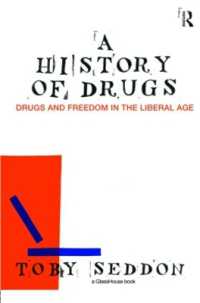- ホーム
- > 洋書
- > ドイツ書
- > Humanities, Arts & Music
- > Philosophy
- > miscellaneous
Full Description
Pursuing a legal, moral and philosophical approach based on the author's extensive research, it makes valuable contributions to the fields of legal and moral ethics, legal and moral philosophy, and criminal law and doctrine.






